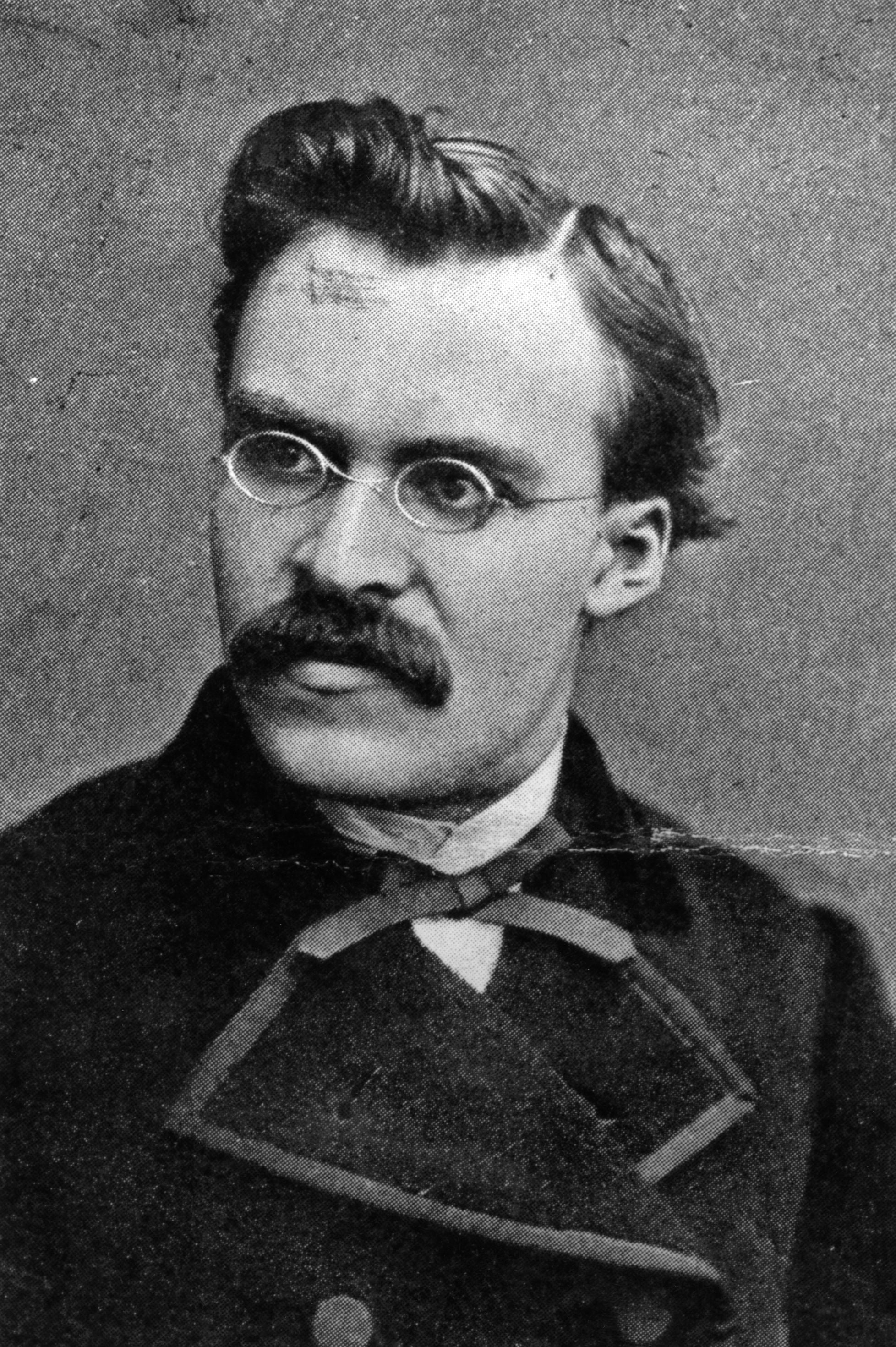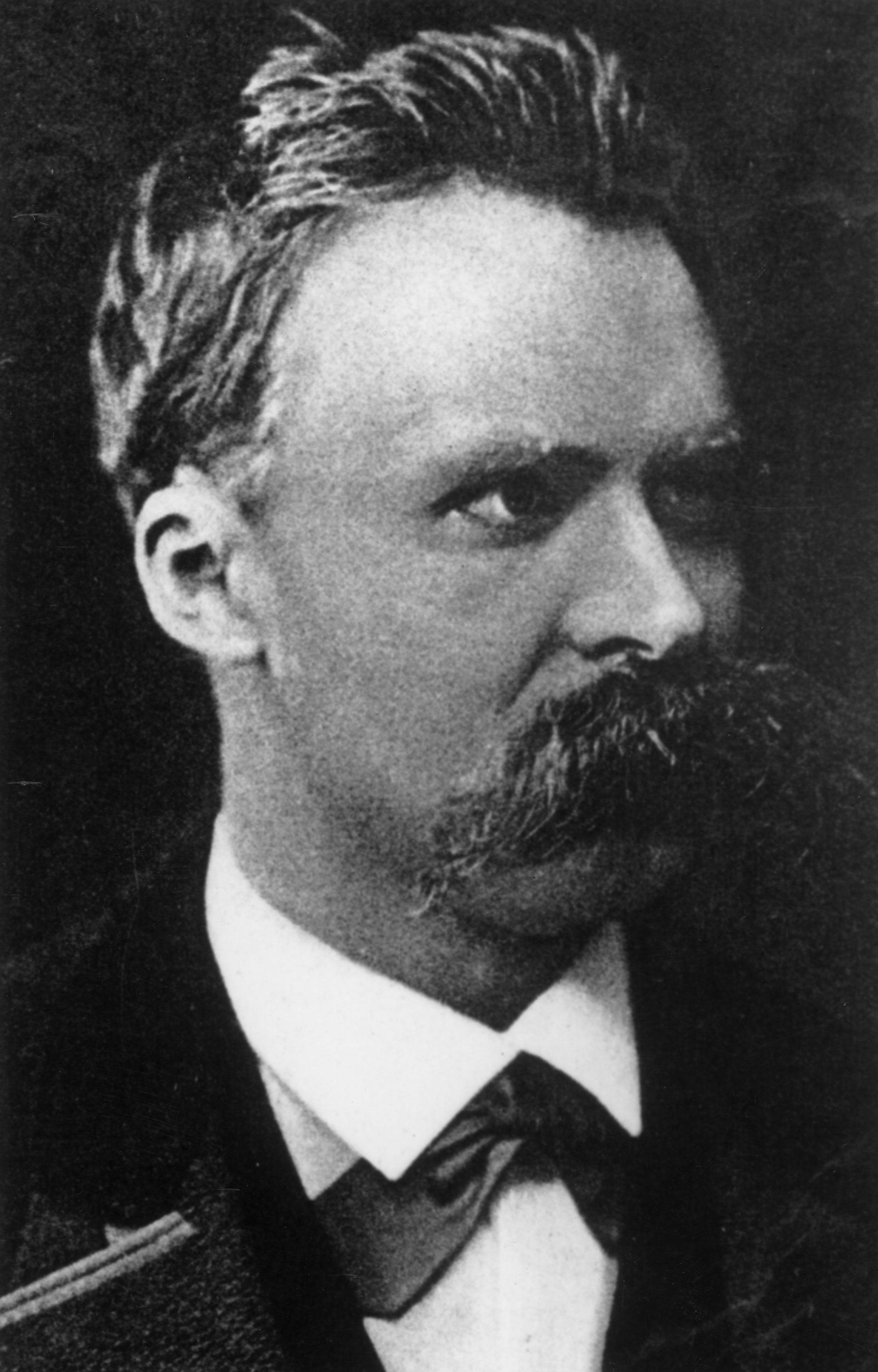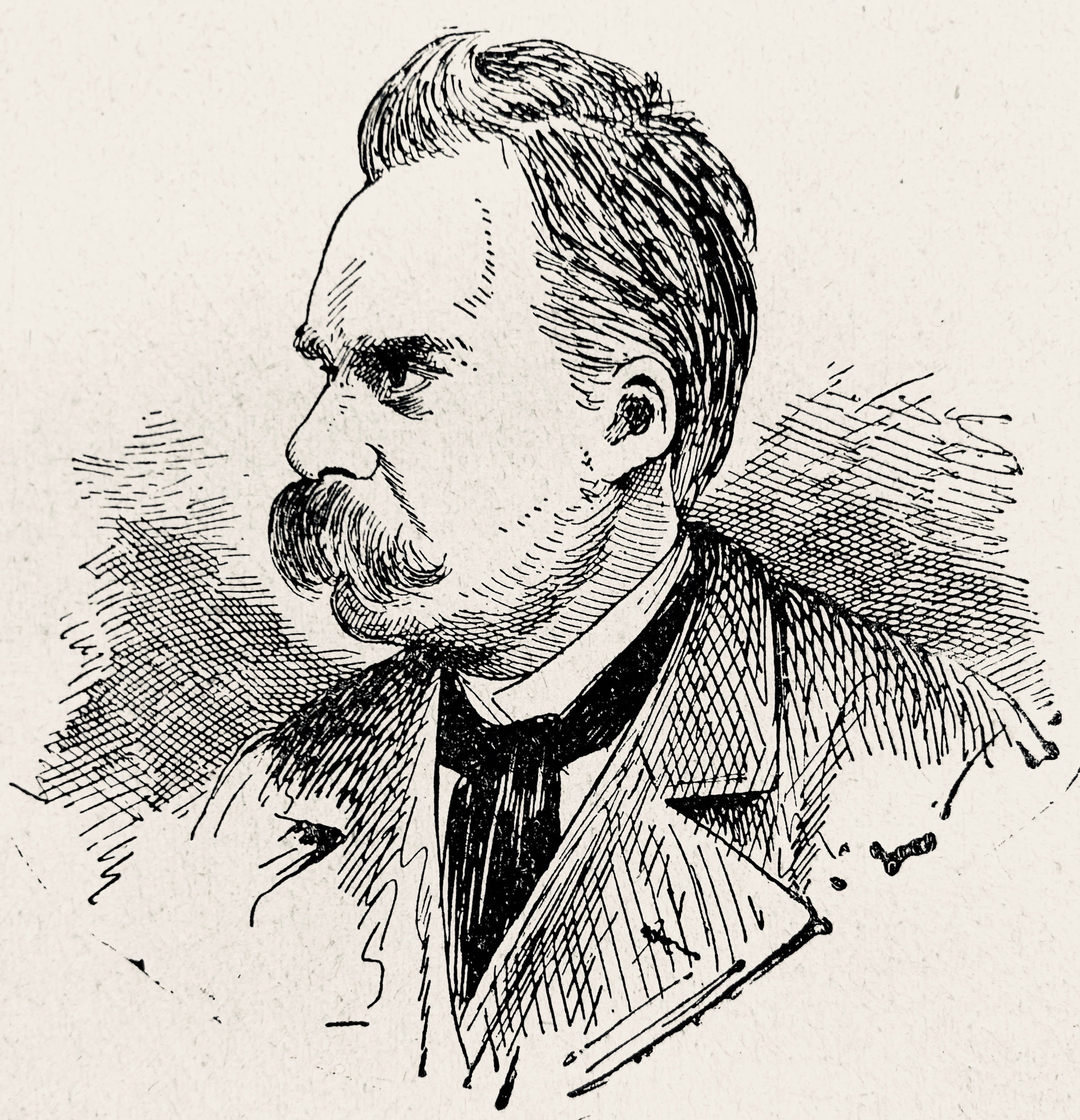Friedrich Nietzsche: Influential, controversial, disturbing
Nietzsche is perhaps one the most famous philosophers of the 19th century, yet he remains one of the most misunderstood – and misquoted

Friedrich Nietzsche (1844–1900) remains one of the 19th century’s most misunderstood and misquoted philosophers. However, his most notorious concept, that of the Superman, is in fact closer to Aristotle’s man of virtue than it is to some glorified Aryan hero.
Nietzsche was influential, controversial, disturbing, systematically misunderstood, and tremendous fun to read. It is his excellent prose that initially attracts many of us. You can easily spend an afternoon gorging on his words, by turns smiling at his wit and gasping at his dark pronouncements. You can then spend a lifetime working out his meaning.
Nietzsche’s short life began on 15 October – the birthday, too, of his namesake Friedrich Wilhelm IV, the King of Prussia – in Röcken, Prussia. His father, Ludwig, was a Lutheran minister and his mother, Franziska, was the daughter of a Lutheran minister.
What bearing this surfeit of Lutheranism had on his scathing treatment of religion is worth thinking about. So too is the fact that Nietzsche’s father lost his mind when Nietzsche was only five – there is some speculation about the unlikely possibility that Nietzsche’s insanity was inherited. Following his father’s collapse, he, his sister and mother lived with the maternal side of the family: two aunts and a grandmother.
Nietzsche obtained an excellent classical education in a famous boarding school and eventually took a place at the University of Bonn to study theology. He quickly abandoned theology for philology at the University of Leipzig, toying momentarily with the possibility of studying chemistry. It was at Leipzig that Nietzsche discovered his three great early influences: Schopenhauer, the materialist FA Lange and Wagner. It was also at Leipzig that Nietzsche, who seems to have otherwise abstained from sex throughout his life, probably contracted syphilis in a brothel.
Following a brief stint in the military, which was cut short due to a chest injury caused by the pommel of his saddle while he was mounting his horse with excessive exuberance, Nietzsche rather astonishingly was offered the chair in philology at the University of Basel. He had not completed a doctoral thesis, but the enthusiasm of his tutors and Nietzsche’s great gifts carried him through to the post. He was just 24.
He soon took leave to serve as a medic in the Franco-Prussian war and, on his return to the university, was plagued by dysentery and diphtheria. Although he got to work on his first book and undertook the usual teaching duties, Nietzsche was never well. He had suffered from several health problems since early childhood – migraines, insomnia, poor eyesight and stomach upsets, which were probably the result of ulcers.
His old illnesses, coupled with his new ones, finally forced him to retire from the post. He spent the remainder of his sane life shambling between boarding houses in constant ill-health – with the possibility of suicide his only comfort, he once confided – writing and publishing a remarkable number of books and essays, filling countless notebooks in the process.
Nietzsche argues that the west’s intellectual and interpretive scaffolding, its underlying concepts that we all use to arrive at judgements of value, can no longer sustain us
In January 1889 in the Piazza Carlo Alberto in Turin, he watched as a cab driver beat his horse. Something snapped. Nietzsche flung himself around the horse’s neck and eventually collapsed, utterly insane. He spent the following 11 years in a Basel asylum or in the care of his mother, until her death, and finally his sister. He never recovered. It is suspected that Nietzsche suffered from syphilitic lunacy.
If this were not degradation enough, Nietzsche’s unspeakable sister did much to squander her brother’s legacy, and it is possible that her efforts had something to do with the disastrous appropriation of his philosophy by the Nazis. It is clear, though, that Nietzsche would have despised all of this. He certainly thought little of German nationalism and party politics in general.
Truth and values
It is not possible to work through Nietzsche’s many volumes in any detail here, but we can consider some of the themes that recur in several of them. Nietzsche’s writings are sometimes mistakenly regarded as lessons in nihilism, the view that values have no justification or meaning. Some take it that Nietzsche argues for the claim that there are no moral standards, that truth has no value, and that religion is decadent or dying, and certainly, Nietzsche says all of this or nearly says it.
Nihilism, though, is not his conclusion; it’s his starting point. He argues that the west’s intellectual and interpretive scaffolding, its underlying concepts that we all use to arrive at judgements of value, can no longer sustain us. Perhaps it was possible for human beings, once, to buy into the idea that value has a basis in something beyond this world (say God or the Absolute), but no longer. We are on the verge of a spiritual crisis, and something new is needed to sustain us, otherwise, we plummet into the horrors of nihilism or worse.

Nietzsche views this crisis with something approaching joy because he sees in it a new kind of freedom, a freedom to find value for ourselves. His catchphrase for the crisis of value is “God is dead”, and it is easy to hear the happiness in Nietzsche’s voice when you read it. Consider this passage:
In fact, we philosophers and “free spirits” feel ourselves irradiated as by a new dawn by the report that the “old God is dead”; our hearts overflow with gratitude, astonishment, presentiment and expectation. At last, the horizon seems open once more, granting even that it is not bright; our ships can at last put out to sea in face of every danger; every hazard is again permitted to the discerner; the sea, our sea, again lies open before us; perhaps never before did such an “open sea” exist.
Nietzsche’s treatment of moral value is instructive, an illustration of what he takes to be free-thinking in the light of the realisation that the current conceptions of value are bankrupt. His discussion is philosophical, though some deny this, as well as philological, quasi-historical and, at times, verging on psychoanalytical. By laying bare the alleged meaning and history of our moral values, Nietzsche hopes to undermine them, reveal them for what they really are, and replace them with something better.
It is very easy to lose one’s way in all of this, owing principally to Nietzsche’s style – clarity and argumentation are sometimes exchanged for rhetoric and good prose. Nietzsche calls himself an “immoralist”, suggesting that he renounces all conceptions of morality, but really he only wishes to reject the west’s present moral categories. He also says that the admirable person is “a creator of values”. Some see in this a kind of radical relativism or egoism, the view that each individual ought merely to function according to their own notion of right and wrong, perhaps only look after their own interests. This is probably another misreading.
In fact, Nietzsche is calling for us to return to the moral concepts held by the ancient Greeks. Morality, for both Nietzsche and at least some of the Greeks, depends on human nature; in particular, it is an expression of what is excellent in us. For Nietzsche, though, human nature is not universal – our natures are different, and it, therefore, follows that different people can find and follow different conceptions of excellence, different moralities.

Morality and the will to power
In saying all of this, Nietzsche distinguishes between master morality and slave morality. In the former, the nobles or ruling classes call what is best in themselves “good” (truthfulness, power, pride in oneself) and what they despise in those they rule “bad” (weakness, lies, timidity, insignificance).
The slaves and, in particular, those with a priestly impulse, see things differently. In their impotence, unable to exercise power of any sort on their masters, they invert master morality. “Good” is now applied to weakness, meekness, suffering and loss, as well as those qualities most needed by the weak: sympathy, humility, friendliness and patience. “Evil” becomes a term of abuse levelled by the weak at the properties of the strong they most despise: their health, power and strength.
Nietzsche writes: “… the wretched alone are the good; the poor, impotent, lowly alone are the good; the suffering, deprived, sick, ugly alone are pious, alone are blessed by God … and you, the powerful and noble, are on the contrary the evil, the cruel, the lustful, the insatiable, the godless to all eternity …”
The “slave revolt” in morality, according to Nietzsche, has left us with a slave morality, and in this strange historical moment of freedom, what is needed is something near a return to master morality.
Man and superman
The return is exemplified by the Übermensch (the Overman or Superman), that being which has overcome what has so far defined us as human, the now-crumbling system of value. Humanity, such as it is, is now something to be overcome, and the Overman is “the lightning out of the dark cloud of man”, the new ideal at which to aim. Nietzsche labels as “human, all too human” the religious or transcendental hopes and illusions characterised by our current dying scheme of value: the belief that virtue consists in obeying the will of a dead God, that the fictitious rewards of the next life somehow excuse subjugation in this one, and so on. The Overman renounces all of this, carving out his place in the world according to his own will.

The notion of will – in particular, the will to power – determines much of Nietzsche’s thinking. Some incautious remarks in some of his notebooks suggest that Nietzsche might have toyed with the thought that everything is will to power, that the will to power is the elementary force underlying all reality or the fundamental explanatory principle. It first appears in his published work as one drive among others, a striving for control, but it is clear that in the end, Nietzsche thought it was much more than this.
Nietzsche has his prophet, Zarathustra, asserting that all life is will to power. In later works, he calls it “a life-affirming drive”, and it is possible to settle on the view that, at the very least, the will to power is a kind of brute tendency for self-assertion manifested in us all. Couple this interpretation with his remarks on what is good, and one can begin to make some sense of otherwise perplexing passages.
But in reading Nietzsche, we want more than just sense; what we’re after is truth. If what Nietzsche is proposing is a new conception of morality, then it should have some advice in it, shouldn’t it? It should give us some thoughts on how to live, some idea of what we ought to value, some conception of rightness and wrongness in action. It’s all very well to say that some return to the Greeks is required, that we must find our own value, but without further advice, isn’t this just empty bad air?
It is difficult to think along such lines without imagining Nietzsche shaking with rage at the very thought of such an objection. His point is that human beings have had enough advice, enough listening, enough following. If we are to overcome the very herd instincts that motivate this kind of objection, we are going to have to do some thinking for ourselves.
Major works
The Birth of Tragedy (1872)
This recasts Greek culture in terms of wild Dionysian energy rather than sober Apollonian reserve. Nietzsche sees in such energy the possibility of creative, cultural and spiritual rebirth.
Human, All-Too-Human (1878)
A collection of usually pithy but sometimes perplexing aphorisms on an enormous range of topics. Here, the notion of power makes a genuine appearance in Nietzsche’s writings.
Thus Spoke Zarathustra (1883-85)
A work among Nietzsche’s most important writings. It recounts the development of Zarathustra, who prophesizes the coming of the Overman and what might lie beyond the human condition.
Beyond Good and Evil (1886)
Nietzsche’s account of morality, which also contains a mature expression of the will to power.
The Genealogy of Morals (1887)
It is possible to read this as a critique of Christian morality. It includes Nietzsche’s account of the “slave revolt” in morality, as well as a blistering critique of the priesthood. It concludes with an expression of perspectivalism.




Join our commenting forum
Join thought-provoking conversations, follow other Independent readers and see their replies
Comments